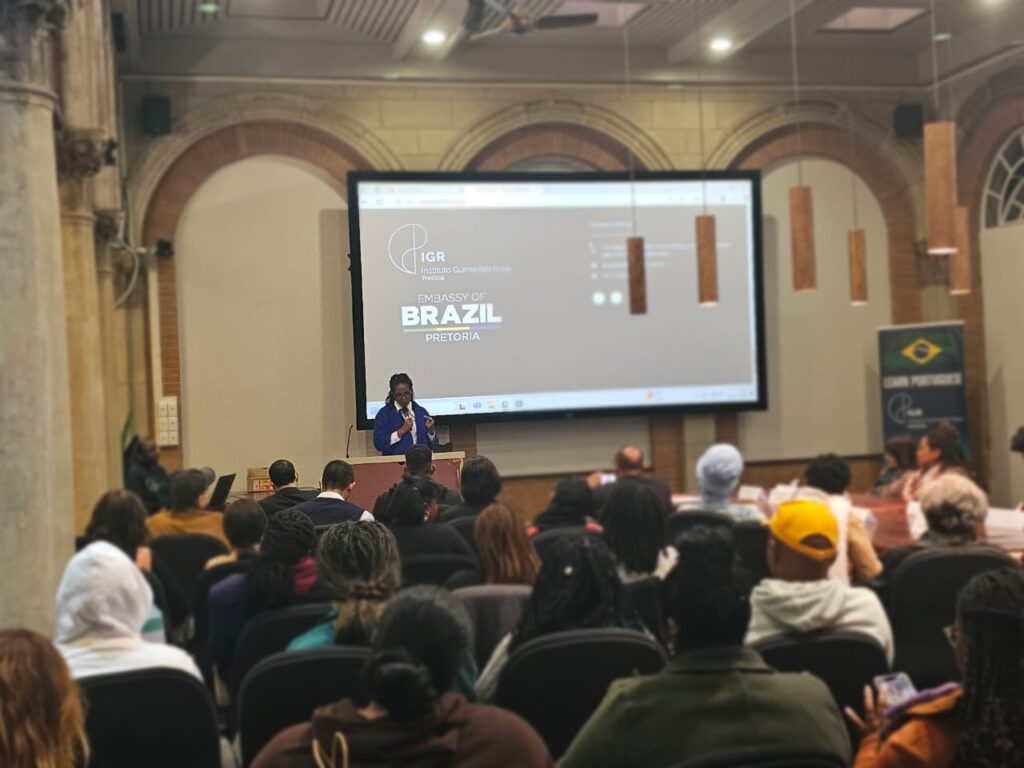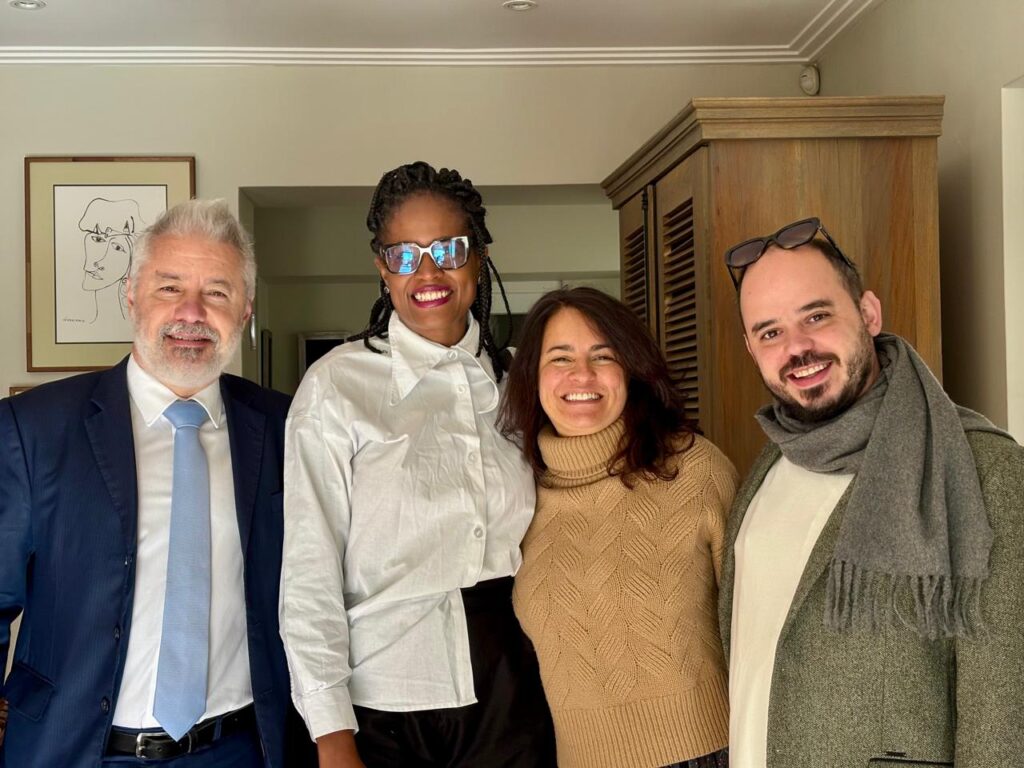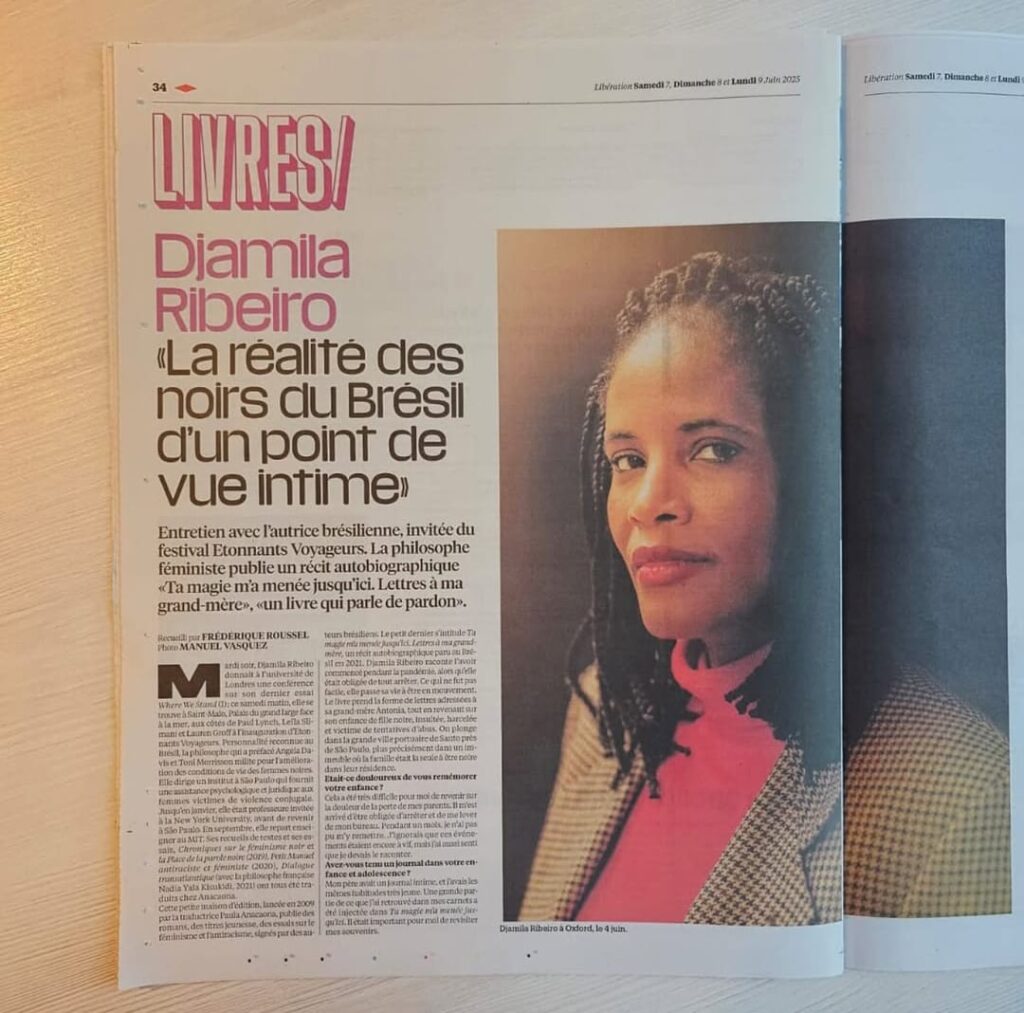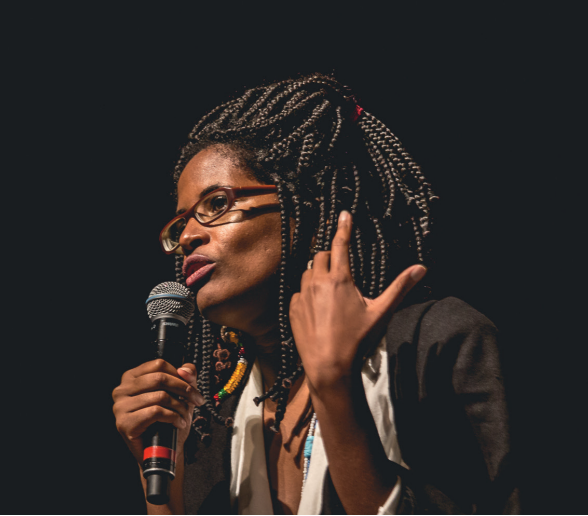Travel Log: Wits University – Johannesburg

By Djamila Ribeiro
This text was supposed to be an Instagram post, but I got carried away. Instead of holding back, I decided to publish it here on my website for the first time—and I really liked the idea. I’ll do this more often.
Saying something is “the first event in history” is always risky. Brazilians are bridge builders, and we have a long tradition of intellectuals whose works, once translated, have traveled across worlds and times. Still, according to the statement made by Brazil’s Deputy Chief of Mission in South Africa, the dear Murilo Komniski, I was the first Brazilian author to hold a book launch in South Africa.
That’s what happened yesterday when Brazil wrote an important chapter at Wits University. With its century-long history, central role in the fight against apartheid, and academic excellence, Wits is one of the world’s most relevant universities. Supported by the Department of Anthropology and the Brazilian Embassy, I launched Where We Stand—the English edition of my book Lugar de Fala, featuring a foreword by Chimamanda Ngozi Adichie and a brand-new introduction. The event was packed, and I had the honor of sharing the stage with Bahian artists funded by cultural public policies from the State Government of Bahia (@flotar_).
I was especially moved to meet Manoela Ramos, known for her Instagram account @escritoraviajante. Manoela is one of the organizers of the Boipeba Island Book Fair in Bahia and participated in many meaningful conversations during the event. I publicly committed: I will attend this festival in 2026 and will have the honor of visiting the quilombola community where it takes place. The event, from what I hear, will likely be moderated by Lucas de Matos, a writer and literary columnist, whom I also had the pleasure of meeting and chatting with.
Among so many powerful presentations, I highlight the photography session by Amanda Tropicana. Her words touched me deeply. Amanda shared how reading Letters to My Grandmother inspired her to return to Anthropology school at UNEB after pausing her studies due to motherhood. Her work, presented at Wits, offered comparative portraits of Salvador and Maputo, revealing a sensitive and powerful perspective on the intersections within the African diaspora.
I also send my regards to dancer Cátia Janaina Silva, who delivered a beautiful performance in honor of the Yabás; to photographer Letícia França; and to researcher Luiz Pedra, who are currently showcasing the exhibition Ngongo—on display both at Wits University and at the Guimarães Rosa Institute in Pretoria.
Where We Stand is published by Yale University Press and distributed in South Africa by Jonathan Ball Publishers, the country’s largest publishing house. I’m deeply grateful to Shakti India and the entire Jonathan Ball team for their warm and respectful reception of the book. The title will be available in the country’s leading bookstores, and the publisher also organized a press tour. I was interviewed by important voices in the South African literary scene, including the podcast Cheeky Natives, hosted by Dr. Alma and Letlhogonolo Mokgoroane, as well as by renowned journalist Jennifer Platt from the Sunday Times, South Africa’s largest-circulation newspaper. I had the joy of having lunch with Platt, Shakti, and Sandy—both from the publishing house—in yet another generous and heartfelt exchange.
These were days full of axé. I extend my gratitude to Ambassador Benedicto Fonseca Filho, a true source of pride for the Black Brazilian community. As the first Black career diplomat in Itamaraty’s history, Benedicto’s path is rooted in his father’s work within Brazil’s diplomatic foundations. His life deserves a biography. I also acknowledge the entire Embassy team, especially Rodrigo Govedise and Daniela Malheiros, who helped organize the event. And I reserve a special thank you for Deputy Chief of Mission Murilo Vieira Komniski, who, alongside his wife Paula and their daughter Maria, warmly welcomed us into their home. We had dinner together, talked late into the night, and discovered rare synergies. Murilo has an admirable career at Itamaraty, and Paula is a psychoanalyst with research dedicated to the journey of motherhood—a theme she explored in her doctoral dissertation at UnB. From this time in Johannesburg, I leave with new and dear friends.

Murilo, me, Paula, and Brenno
On the morning of June 19th, I fulfilled the last commitment of this leg of the tour: a class with the Department of Political Science at New York University in Abu Dhabi, United Arab Emirates. I held an online session about Where We Stand, invited by Professor Cristina Buarque de Holanda and researcher Leonardo Dias. It felt like a symbolic return, as I previously taught for six months at NYU in New York—without ever setting foot on the Middle Eastern campus. That’s why this invitation brought me double joy: perhaps it marks the beginning of a new story between Where We Stand and the region.
Now I’m briefly heading back to Brazil for a commitment I can’t reveal just yet. But on June 25th, the address is set: I’ll be at Livraria Travessa in Lisbon for a single book signing session. It will be a pleasure to reunite with my editor Zeferino Coelho from Editorial Caminho and meet with the Portuguese press. After that, I’ll rest for a few days—this tour certainly deserves that kind of closure.
Content translated with the assistance of AI.
Related articles

June 17, 2025
Professor Djamila Ribeiro brings Black literature and place of speech to France

December 21, 2022
Djamila Ribeiro launches new website

December 21, 2022
Djamila Ribeiro is on the cover of Forbes Life

